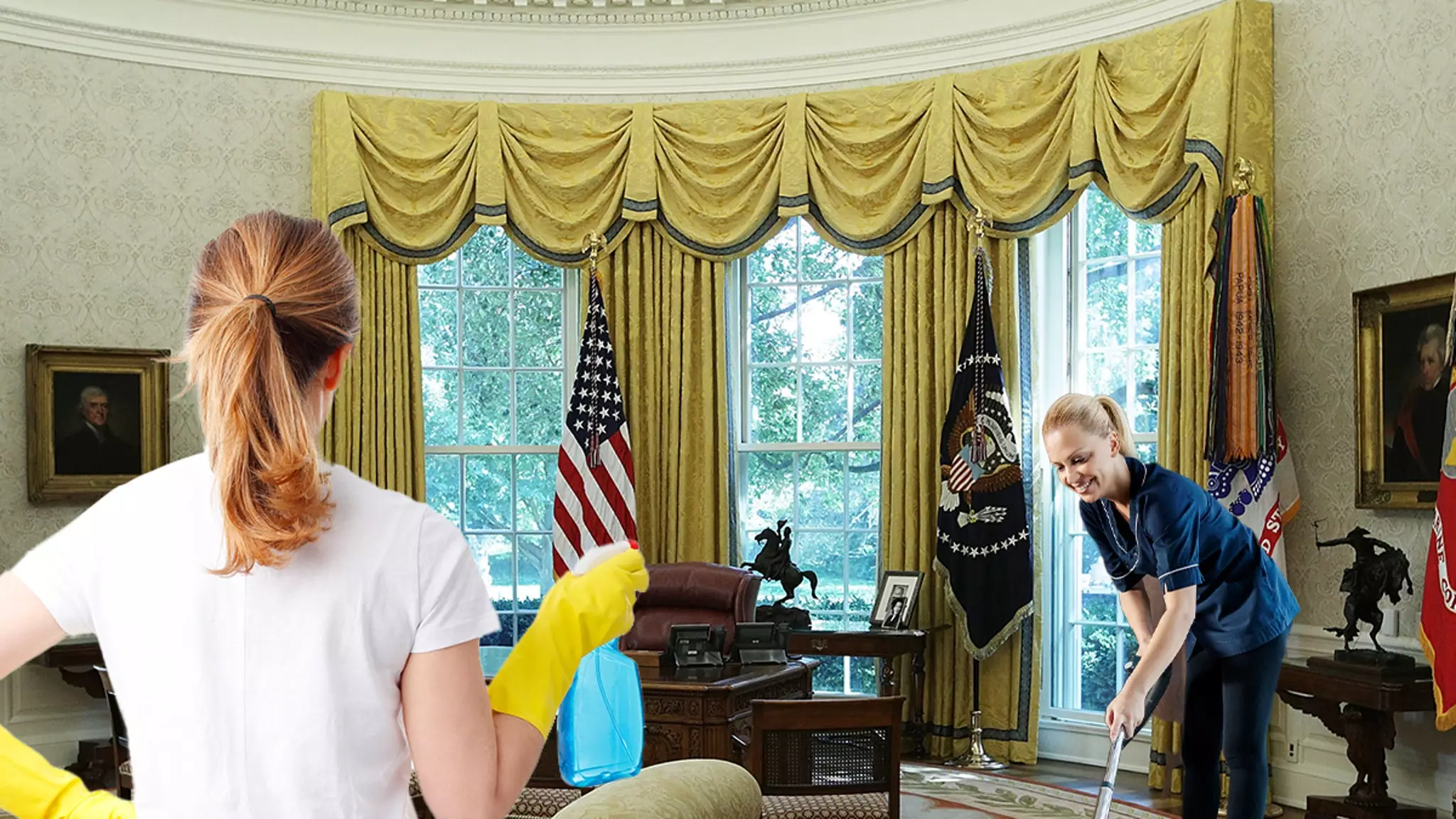As the political landscape shifts with the anticipation of Donald Trump potentially returning to the White House, the Biden administration is moving towards an extensive cleaning operation within the presidential estate. Such preparations signal not only a change of administration but the customary maintenance that comes with the handover of power. Recent financial documents reveal that the White House has enlisted a professional cleaning service to deep clean several crucial areas, including the West Wing and the Eisenhower Executive Office Building. This endeavor, costing nearly $141,000, reflects the significant investment in ensuring that the presidential residence is in pristine condition ahead of the next inauguration.
This significant financial commitment consists of an initial deep clean priced at $140,930, supplemented by an additional $46,800 dedicated solely to carpet cleaning. The total expenditure presents a substantial figure, especially in contrast to cleaning costs incurred during previous administrations. For instance, during the transition from Trump to Biden in 2021, the cleaning expenses amounted to just over $127,000, demonstrating a notable increase in financial outlay this time around. Such increases can be attributed to various factors, including the pressing nature of the current economic climate and inflation, which has become a central topic of concern among voters.
The pattern of cleaning expenditures raises interesting questions; specifically, whether these price variances are a byproduct of inflation or represent a shift in the Biden administration’s approach to White House maintenance. In 2020, the Trump administration allocated approximately $44,000 for carpet cleaning alone, a figure that contrasts starkly with the present costs. Observing these shifts provides insight into how different administrations prioritize and manage logistics, especially regarding public perception and voter concerns about spending during financially challenging times.
The spotlight on this cleaning expenditure offers a dual opportunity for public scrutiny of presidential priorities. During the run-up to elections, the handling of taxpayer dollars often becomes a topic of heated debate. The Biden administration must navigate perceptions surrounding this expenditure, particularly with many voters expressing concerns about government spending amidst economic uncertainty. Such financial decisions can impact public approval, often serving as a litmus test for a presidency’s responsiveness and responsibility in managing public funds.
Ultimately, the Biden administration’s cleaning operations reflect the broader narrative of transition and preparation as the nation braces for the potential return of a former president. While the financial implications are certainly noteworthy, they also serve as symbolic gestures of both respect for the presidential office and the solemnity of the democratic process. Moving forward, staying attuned to how these logistical decisions resonate with citizens will be critical for the administration’s standing as it navigates a potentially polarized political landscape.

